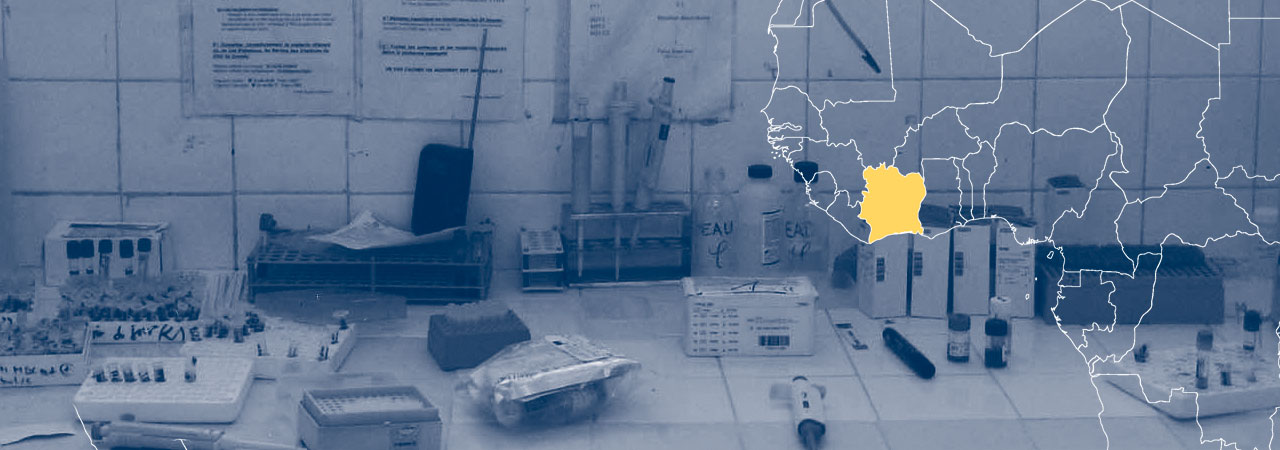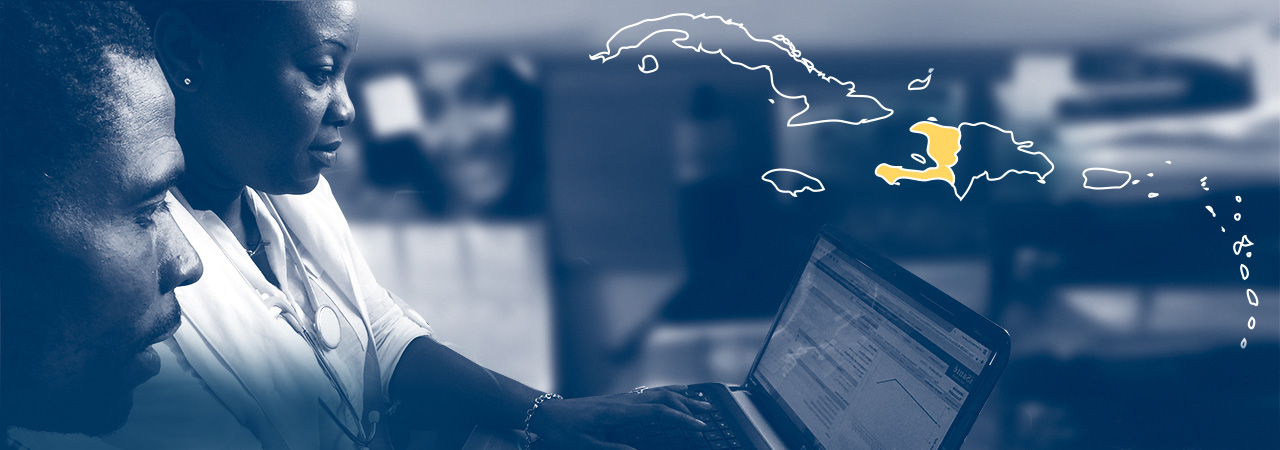Since 2009, the University of Washington’s International Training and Education Center for Health (I-TECH) has worked with the US Centers for Disease Control and Prevention and the Côte d’Ivoire Ministry of Health and Public Hygiene (MSHP) to strengthen laboratory information systems at the national and regional levels. I-TECH laboratory support to Côte d’Ivoire aims to develop and implement targeted interventions designed to support expanded use of laboratory information systems and their data for decision making. With I-TECH support, adoption of an open-source electronic laboratory information system (eLIS) has already resulted in improved efficiency and accuracy of laboratory data collection and reporting. Over 50 national, regional, and general hospital laboratories across Côte d’Ivoire have implemented eLIS systems.
In 2021, I-TECH began a five-year cooperative agreement with the United States Health Resources and Services Administration under the US President’s Emergency Plan for AIDS Relief (PEPFAR) to begin implementing the Quality Improvement (QI) Solutions for Sustained Epidemic Control (QISSEC) project, which aims to improve data quality and strengthen capacity to help close HIV-related service delivery gaps across clinics and communities throughout Côte d’Ivoire.
Current Program Highlights
Past Programs
I-TECH’s Health Information Systems Team lies within the Health Systems Strengthening division. The team has significant capacity in the rapidly expanding field of Health Information Systems for resource-limited clinical settings. I-TECH develops and deploys systems and provides technical assistance and training on electronic medical records, laboratory information management, disease surveillance, national eHealth architecture design, national standards for data transfer and system interoperability, and data use for improved clinical service delivery.
Program Highlights
In partnership with the Ministère de la Santé Publique et de la Population (MSPP) and the local nongovernmental organization (NGO) Centre Haïtien pour le Renforcement du Système de Santé (CHARESS), I-TECH implements programs to improve HIV services via a trained health workforce and robust health information systems (HIS) in Haiti. In June 2018, I-TECH successfully transitioned the country office in Haiti to the fully independent NGO, CHARESS, after years of strategic planning. Since the conversion to CHARESS, all of I-TECH’s activities are executed through the NGO.
Through CHARESS, I-TECH provides technical assistance to ensure that both national-level entities and health care sites are able to effectively use the integrated systems iSanté, the electronic medical record system, OpenELIS, the laboratory information system, and TrainSMART, the training participant management database. These allow for better decision making by providers, differentiated care for patients, and improved clinical performance through continuous quality improvement.
At the national level, the MSPP and the donor, the U.S. Centers for Disease Control and Prevention (CDC) through the President’s Emergency Plan for AIDS Relief (PEPFAR), are able to conduct national-level public health analysis using data from the systems. These analyses are used to modify policies and target assistance for better care and treatment of patients.
Currently, I-TECH focuses on three of the six World Health Organization health systems building blocks: health service delivery, health workforce, and HIS. Previously, I-TECH also supported the other three building blocks of leadership and governance, access to essential medicines, and health systems financing through the Centers of Excellence project that ended in September 2016.
Program Highlights

